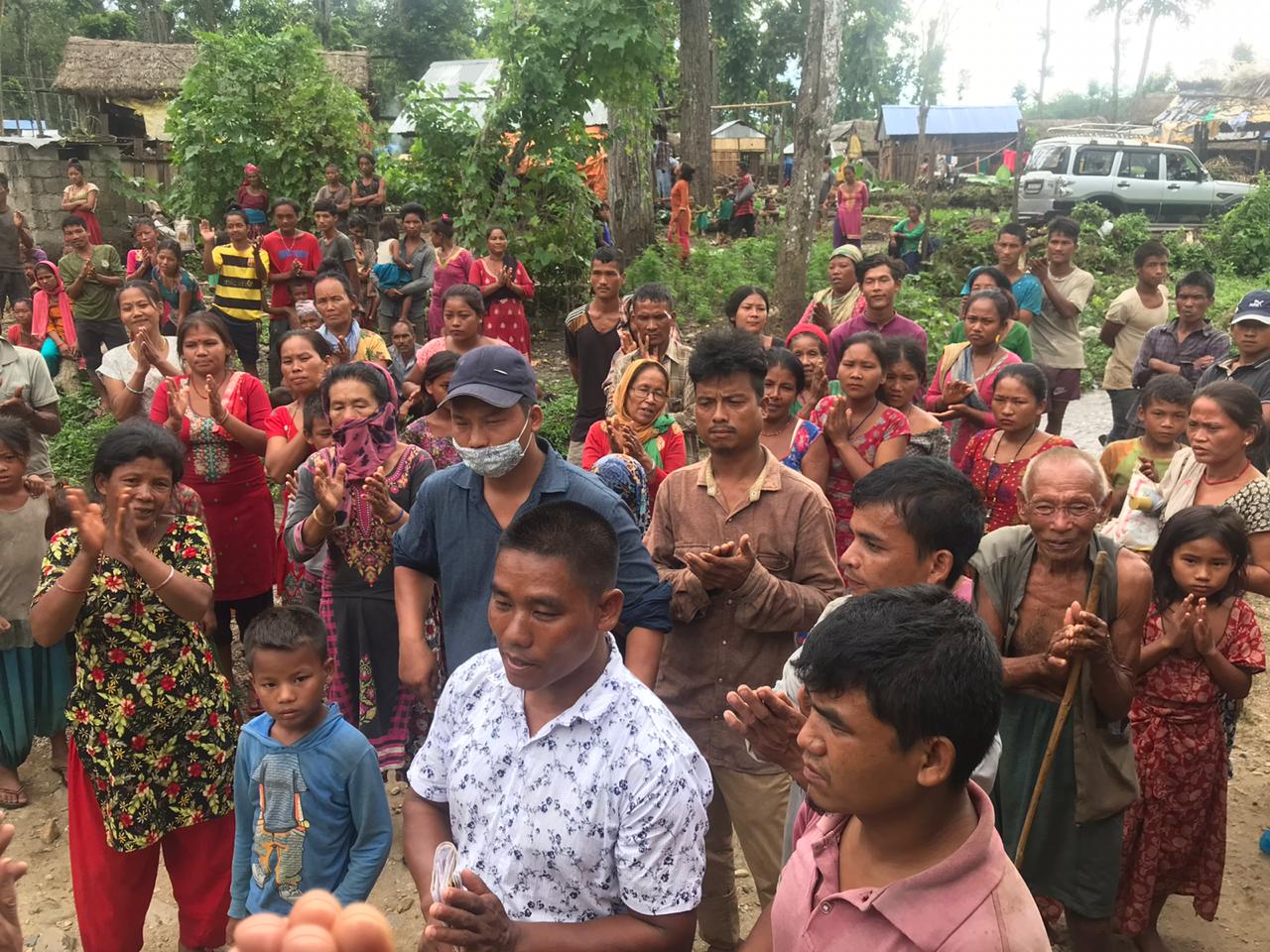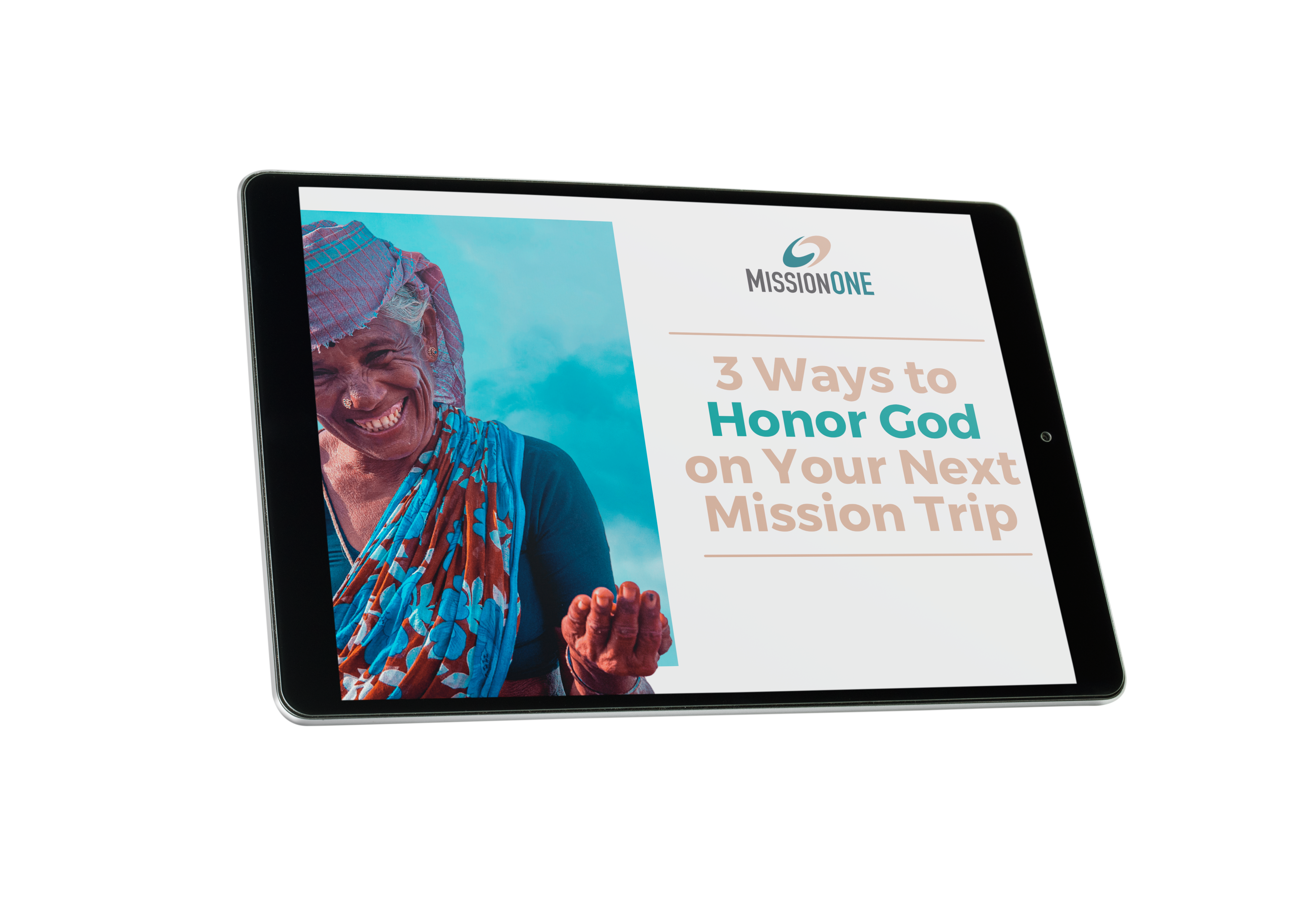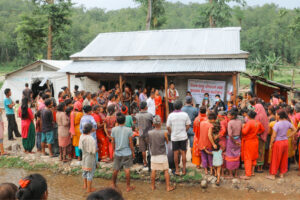Home > Dignified work >
*The names in this blog post have been changed to protect the identity of our partners.
In our last blog post, we addressed the importance of philosophy in Christianity and how some beliefs, like those of the Greek Philosophers Plato and Aristotle, have affected the theology and teachings of many Christians across the world over the years.
Generally speaking, Plato divided everything into realms––the concrete and the abstract and he said that this world was but a mirror reflection of an ideal world of perfect “forms.” Aristotle, his student, rather prioritized the world of the senses. What we see, smell, touch, and hear constitute what is most real.
Mission ONE engages in work to restore all of creation to be more like the Kingdom. Addressing the needs of physical brokenness creates fertile ground for spiritual work. It is in this pursuit of restoration that we search for biblical truth. We value the varying perspectives of the Global Church, which is why we reached out to our partners in Nepal, regarding this influence. We asked what they have experienced and the impact it has had on them, as well as their entire community.
Indra and Ada, husband and wife, have been Mission ONE partners since 2009. They are uniquely equipped to understand the cultural and religious dynamics of the people of Nepal. Their holistic approach to ministry brings the hope of Jesus to people while their lives are transformed–through the local church.
Aristotle and Plato did not just impact Christian theology in the West. This polarization of how to best care for people can also be seen in Nepal.
How do these two perspectives differ in regards to Christianity and a holistic approach to the gospel?
INDRA: “Both are extreme. In John 10:10 it says “I came that they may have life and have it abundantly.” Abundant life is as spiritual as it is physical. Studying the life of Jesus in the Bible, we see that he came to give abundant life to the people, but he did it also in physical ways: he fed the hungry people, he healed the sick people, he did miraculous things addressing all the special needs. Ultimately, he shared the gospel showing us what the Kingdom is like through these acts of restoration.”
INDRA: “That’s why seeing these two extremes, God is really calling us to balance both sides: spiritual and physical. Our ministry is a holistic ministry; obviously our focus is spiritual but we have a full platform: health, education, agriculture, and vocational training to try to address the physical needs of the human being. Helping us develop relationships with all people and ultimately share the gospel.”
What happens when we focus too much on one or the other?
ADA: “We hear a lot of concerns from our non-Christian friends—in Nepal the Christian population is less than 5%, so there are many non-Christians. If we focus only on the spiritual side of it, they say to us ‘you want conversions, you want your religion to be preached, and to build your kingdom’ that’s how they see us. That’s why we really like a holistic approach because, of course we focus on the human needs but the huge need among every one of us is that spiritual need that we all are sinners and we need the redemption from the sin. So if we only focus on the one, they see us as a selfish people. Not only that, when we can balance both things, we can show that we are human living on this earth and have needs. We have day-to-day issues that we go through just like everyone.”
Why do you think we should care about our physical experiences on earth?
ADA: “We can connect with others by showing them we too have physical needs and that way we can share the gospel. In Nepal, Jesus is considered a God of the West, so many think we worship a foreign God. That we just want to spread the Western agenda—which we are not! We are trying to be representatives of Christ, of God for all people.”
INDRA: “When Jesus met the woman at the well, he asked her for water though he was not thirsty. He connected with this woman and didn’t worry about any discrimination, or that she wasn’t accepted in society. But Jesus reached her and shared the gospel, he told her to bring her family. She told everyone. So, human needs are good to connect people. Building relationships allows them to trust us, they listen to us when we truly love them.”
What are some practical examples of holistic ministry?
INDRA: “We have realized that if we could give women in Nepal training, and if they are capable of earning some money, they can become more fulfilled. Also, when we share the gospel with the women, they can accept Christ and share that with their families and that allows them to become followers of Jesus as well.”
INDRA: “We started the sewing project, a six month project for a couple of hours a day for women to learn a skill and feel more empowered. These women also share time with other women who may be Christian and can build relationships with them in that environment. They share their stories, the gospel and they have meaning for them over there.”
ADA: “In another village, about 15 miles from where we live, there was a school that was government-run, and we had some women who were here to teach English. Two women went to one village, but this one went to that village 15 miles away, and she taught English there. She was there not to share the gospel but to build relationships. Every day she faithfully went to teach English and over time the school was so thankful, we built a great relationship with them. Gave them their first computer and many other things. In doing this we realized that two of the other teachers were secret believers! That gave us much more opportunity. How God used that experience is that those two teachers started the first church in that village and the whole village has an opportunity to hear the gospel because there is a church.”
How do you do work in your communities to share the gospel?
ADA: “We don’t just share the gospel right away because we want to build relationships with them first. We don’t want to go with the approach of ‘if you listen to my gospel then I will give you this’ it doesn’t work like that. When we get to a new village and address the needs, we can see what our resources are and then with much prayer and discernment, we can decide who needs them most, so that we can help that way. And when I say we it’s not just us, it’s the local churches, local pastors, local leaders, local believers—even from other villages. It’s a continuous process, and can take years to see results.”
INDRA: “When we go to a new village we look and figure out what is the Christian story there. Was there a church before and they don’t have it now? Anything like that. Then we do our best to find out what the real need is there so we can do our best to address that. That is a platform in the beginning to build relationships with them. Then we share the gospel and do a discipleship, plant a church and hand it to them. Education, a free medical camp, agriculture, there are many different needs in every village. Sometimes it’s teaching, once we do the research we can work together to help.”

Talk to us about the Cave People and how holistic ministry happened with that project?
INDRA: “The Chepang people have always lived in caves, for generations. Now they’re in huts and moving on land. It’s really hard for them to survive because of the lack of resources, but it has been through the help of Mission ONE and many local pastors and leaders, working together that we were able to mobilize our resources and make a big impact on them. There was one small church there before and now that number is growing. They have seen that we as Christians aren’t selfish, we really care about them and helped them, and love them. And that makes them want to learn about the God we worship. Churches are slowly growing.”
How is Mission ONE different?
ADA: “What Mission ONE is doing is great. You can share success stories with us in Nepal, and that is a good learning experience, but there has been a freedom to hear from us about our necessities. Mission ONE doesn’t prescribe how we do missions work here in Nepal. There has not been a ‘do things like this or this’ from you. Some ministries may come and tell people what to do, and that can be a useful approach for some, but here, Mission ONE has asked us ‘what is the vision that God has given to you? How can we be part of it?’ and we think that is the most beautiful thing. There is a communication going on in the relationship, hearing from both parties. And I think that’s what a partnership should look like.”
ADA: “It’s a process, it’s a relationship, and it’s God’s timing. Nothing is in our hands. The beauty of the relationship with Mission ONE has been, they have heard our voice, they have validated it, they have appreciated it, and our voice should not be our voice, it should be God telling us what to do. That’s the beauty of partnership.”
What are some last thoughts regarding life today in Nepal and holistic partnerships and ministry?
INDRA: “Mission ONE respects the heart of the local leaders and we really appreciate that. That means a lot to us, we are able to help and support the people here and what we can do now. Please continue to pray for us and the families around us, especially as COVID continues to spread here..”
ADA: “We also really appreciate all the communication and thank you for Mission ONE’s work for the Lord. God has pulled together a good bunch of people at Mission ONE which allows people like us, from all over the world to do what God has called us to do.”
We want to thank our partners in Nepal for taking the time to share their thoughts on philosophy and Christianity as we continue our more like the Kingdom approach; bringing the Kingdom of heaven to earth now.
We believe that our physical bodies matter now, not just the promise of a new body in heaven because both body and spirit matter to God.
For more information on our Global Partnerships and to find out more about the work Mission ONE does, visit our website.
Search the Blog
Free Resource

3 Ways to Honor God on Your Next Mission Trip
We're sharing three things you should consider before you organize or participate in an international mission trip, seek to do work in the multicultural neighborhood in your own city, or embark on any cross-cultural partnership.

